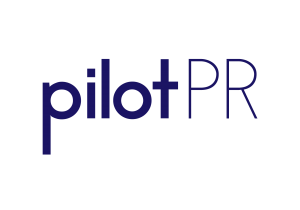For the future generations of c-Suite executives, having an active and career-valuable profile on social media will be an everyday part of doing business. For some it already is. ‘Day in the life of’ style content will (or does) come easily to most leaders, they’ll share their vision, strengths and select elements of their personal life with whoever is interested. It will be a valuable building-block of their career, helping them to differentiate themselves from their competitors, build trust by being transparent, and share their business success.
But there are many successful executives who haven’t grown up with social media and it was segmented to personal life only via Facebook, Instagram or (maybe) Pinterest. Tik Tok anyone?
Previously, building a valuable career profile was achieved by excelling in their field, having the right mentor, networking, and perhaps building a profile with editorial media. For many of these execs, being present in editorial media is much less ‘look at me’ than social media because the journalist is unspokenly endorsing your views and expertise by seeking you for comment.
But the media is fragmented, profiling opportunities are limited, and there are more platforms you can use to build your business profile than there were 10 years ago. Plus, audiences today get their information from a range of platforms. For these reasons, building your reputation beyond your immediate network has become a requirement of the business for executives.
If you’re fearful of social media, building your reputation in general or you wonder how it can add value to your career, role and aspirations – rather than be a time-drain – here are five tips
1. Take an observation period
Spend time getting to know the culture and purpose of the social platforms you’re interested in. If you think you should be on Twitter, check it and watch what other industry leaders, influencers you admire, the media and stakeholders who you’ll want to be part of your audience are doing on it. Watch the topics that trend, the tweets that get the most engagement and if an issue occurs, how another executive or organisation manages that event. Do the same on LinkedIn, Instagram, Snapchat or any other platform you can see yourself finding a space on and engaging with your audiences. The more time you spend on these platforms the more comfortable you’ll become.
2. Analyse influencers you admire
I’ve said before, but no influencer went to bed one day with 24 followers and woke up the next with one million. They have been honing their profile and positioning for years. It would be really interesting to track an influencer’s approach and finesse with social media over time, wouldn’t it? I might do that in another blog. So, during your observation period, watch up to five influencers (they don’t have to be corporate profiles, but it’s more relevant to you and your professional reputation if they are) and note why you like their style. It could be their content, how human they are, you can track their journey, they share their wins and losses, they use video a lot, they don’t use video, they celebrate the success of their people – anything. Then think about which of these elements you’d feel most comfortable utilising as you build your profile on social media.
3. Look at your resources – who can help you?
A barrier for many execs when it comes to social media is that it lends to looking like someone – whether it’s another CEO, an entrepreneur or an influencer – is doing it all on their own. Every post, every blog, every image, every video. They’re not (well, probably not). The bigger the profile and the larger the audience the more support you need. But that’s not to say that if you’re starting out or actively working to build the audience you have, that you need an agency of people acting on your behalf. You should be using the resources you have around you to help build your reputation. Once it’s done, your EA can manage your posting calendar and remind you of your priorities for the week. They can be trained to edit and post your thoughts on your behalf. They can manage your diary so your upcoming blogs or articles are drafted and published across all your platforms. And they can liaise with your corporate affairs, communications or marketing teams to integrate your priorities with opportunities for you to talk about relevant business announcements (maybe they already are). Some executives like to work with one to two people to implement their program, while others are happy to work with a range of stakeholders. Who you work with will depend on your comfort levels and your preferences.
4. Write for one person
This isn’t new advice for writers, but it’s relevant if you’re reluctant about sharing your expertise with an audience bigger than your board, your people, or an industry event. As an introvert, for years the thought of writing in this way has had my anxiety charting high. This advice has helped me immensely. I write as though I’m talking to a client in a one-on-one meeting. I try to share what I know and answer the questions executives I meet with put to me. It helps keep my tone consistent, my topics flowing, and keeps my focus on the leaders and brands I can help.
5. View it as a knowledge sharing exercise
For many, prioritising building your reputation can seem arrogant or excessive. It’s not. It’s now a way of doing business and it’s only going to become more essential as the generations who have grown up with social media use it to build their reputations from graduation onwards. When you put purpose behind your strategy, and know what you want your career legacy to be, building your reputation doesn’t have to just be about you. It’s about sharing your knowledge for the betterment of the people you lead, your industry, and other motivated professionals looking to learn from the pinnacle of business leaders for the betterment of their careers.
Building your reputation across a range of platforms is a process. It takes time, persistence and a clear direction. Start with what is comfortable for you and build from there.
pilotPR newsletter subscribers receive these articles before anyone else. To be the first to receive insights like these, subscribe to the pilotPR newsletter here.
Angela Cross is a reputation strategist who works with c-Suite leaders and brands to build and protect their reputations through PR, corporate social media, industry communication, stakeholder engagement and effective issues management. If you would like to build your reputation with purpose and authority, email her here.



